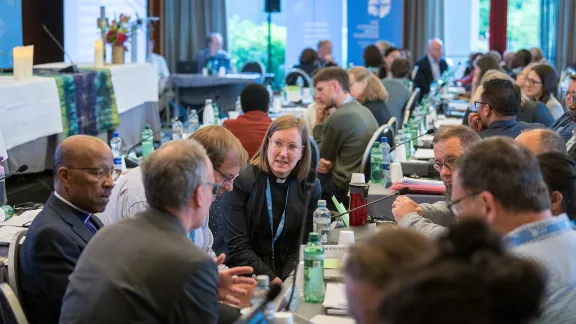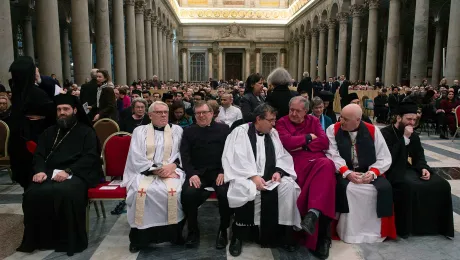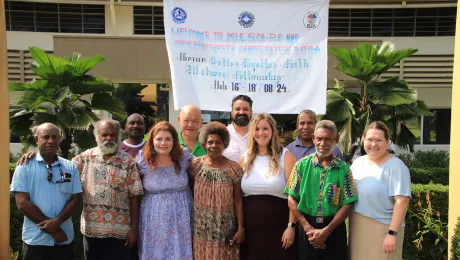
Council members during the June 2024 meeting near Geneva in Switzerland. The LWF governing body decisions included approval of various working groups to support the communion’s work. Photo: LWF/Albin Hillert
Toward a study document on theologies of the cross and strengthening Lutheran self-understanding
(LWI) – As called for by the communion’s Thirteenth Assembly, The Lutheran World Federation (LWF) has initiated a study process to explore the meaning of proclaiming Christ’s cross amid contemporary challenges. It will encompass theological, spiritual, and public witness aspects.
The new Study Group on Theologies of the Cross for the 21st Century, appointed by the LWF Council at its June meeting is mandated to produce a study document on the meaning of theologies of the cross today. The resource will include guiding principles and recommendations on churches’ response to misleading theologies, refer to the experiences of member churches, and other LWF processes on Lutheran identities and theologies of the cross.
The cross is the heart of Lutheran faith. Yet, proclaiming the cross is hard: How do we realistically, truly and responsibly speak about hope, grace and life in the face of suffering, injustice, and death?
Rev. Dr Eva Harasta, LWF Program Executive for Global Lutheran Theology
The concrete meaning of the cross for people facing myriad challenges in today’s world poses critical questions, noted Rev. Dr Eva Harasta, LWF Program Executive for Global Lutheran Theology. “The cross is the heart of Lutheran faith. Yet, proclaiming the cross is hard: How do we realistically, truly and responsibly speak about hope, grace and life in the face of suffering, injustice, and death?” she remarked.
Peace and justice
Understanding and embracing Christ’s vulnerability is central to the study, in a context where LWF’s member churches accompany people who are suffering. Such experiences will be part of the process, with the aim of highlighting unrecognized suffering, in order to foster communities that embody the vulnerability of love.
Lutheran public witness translates awareness about justification by grace alone into present-day actions. The study group will reflect on the churches’ peace and justice initiatives and articulate how the conviction of “being justified and sinful” can be translated into criteria for bearing witness amid oppression and injustice.
The group’s composition meets LWF’s requirement for regional and gender balance, and expertise in theology of the cross. It is made up of theologians and church leaders conversant with the subject in their work and ministry, and lay or ordained individuals whose personal lives are connected to the topic. Content discussions will occur during regular online meetings and follow up in two in-person meetings, supported by LWF staff. The General Secretary will appoint a chairperson for the study group, which is expected to present a report to the Council at its 2028 meeting.


